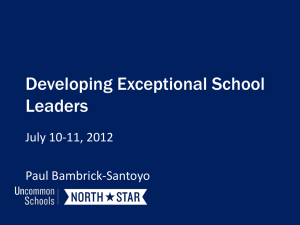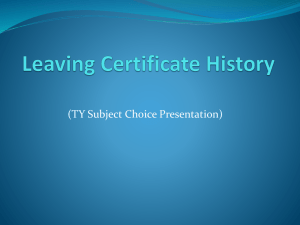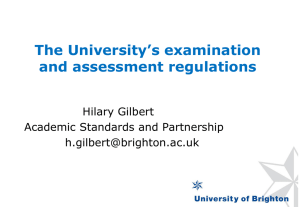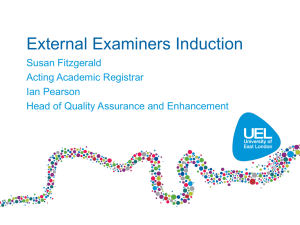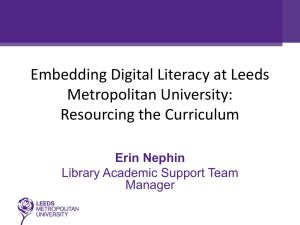The `Ideal Module` and `Bite-sized` Learning
advertisement
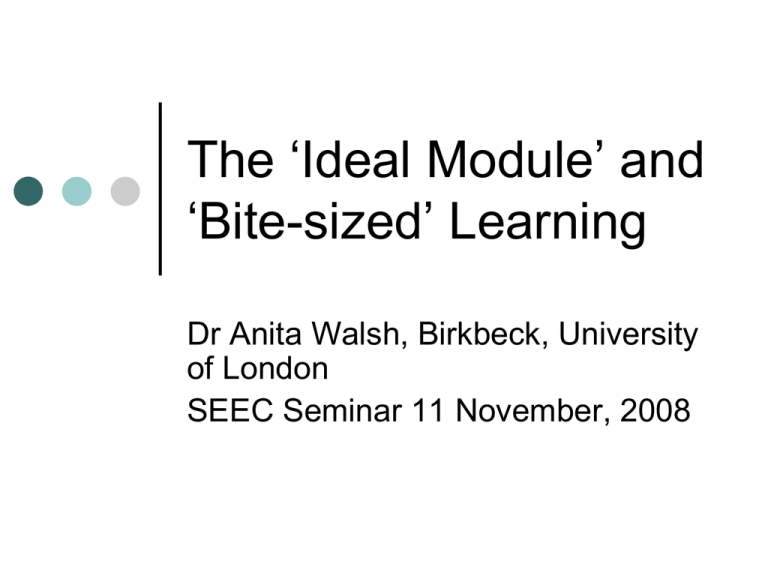
The ‘Ideal Module’ and ‘Bite-sized’ Learning Dr Anita Walsh, Birkbeck, University of London SEEC Seminar 11 November, 2008 The ‘Ideal Module’ and ‘Bite-sized’ Learning Definition of module: A self-contained, formally structured learning experience with a coherent and explicit set of learning outcomes and assessment criteria (Credit bodies, 2001) The ‘Ideal Module’ and ‘Bite-sized’ Learning In a credit framework each module has a credit value (which represents notional time) and credit level BUT there is no formal recommendation for a standard module value/size – why? The ‘Ideal Module’ and ‘Bite-sized’ learning Institutional autonomy – in 2004 70% of institutions had a standard module size BUT values reported: 10, 12, 15, 20, 30 and frequently double, triple and half modules allowed In addition, on occasion, reference to 4 or 5 credit modules The ‘Ideal Module’ and ‘Bite-sized’ Learning Are some of these values ‘wrong’? Credit provides evaluation of learning experience but doesn’t structure it What are the considerations relating to module size? The ‘Ideal Module’ and ‘Bite-sized’ Learning A standard module size offers flexibility in terms of programme design Arguably the smaller the module size the greater the flexibility BUT also increases assessment burden (e.g. 1 x l,500 words on different topics c.f. 3,000 words on one) The ‘Ideal Module’ and ‘Bite-sized’ Learning What is the intention of the learning experience? ‘Taster’ module – 5 credits Dissertation – 60 credits How does level affect the size of a valid learning experience? The ‘Ideal Module’ and ‘Bite-sized’ Learning There has been a shift away from small modules in the first year – perhaps also difficult at postgraduate level? How does standard module size relate to ‘bite-sized’ learning outside the university? The ‘Ideal Module’ and ‘Bite-sized’ Learning Difference between work-based delivery (= different context) and workbased learning (= different content) Aim is to achieve equivalence between learning inside and outside the institution The ‘Ideal Module’ and ‘Bite-sized’ Learning If part of a small, tailored award does the ‘bite-sized’ learning need to conform to standard module? Why? Does precise measurement of time matter? Volume of assessment as a proxy Academic judgement of level fundamental
